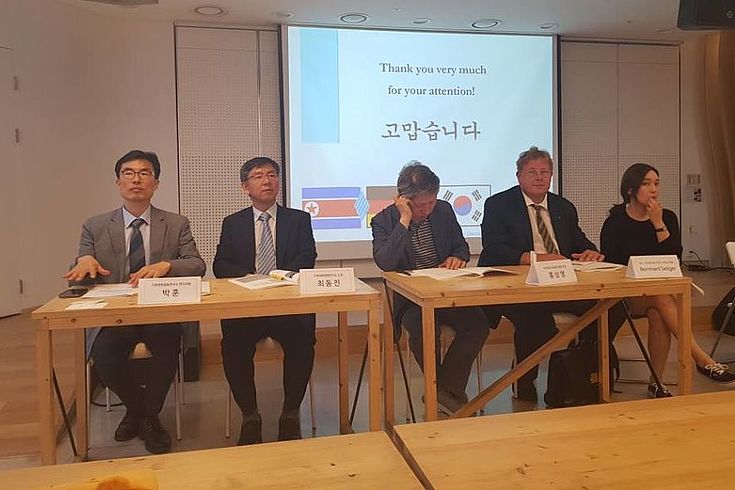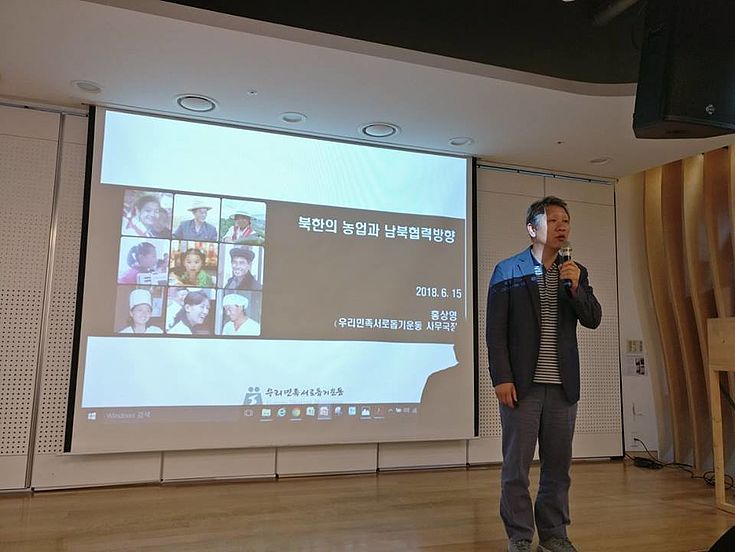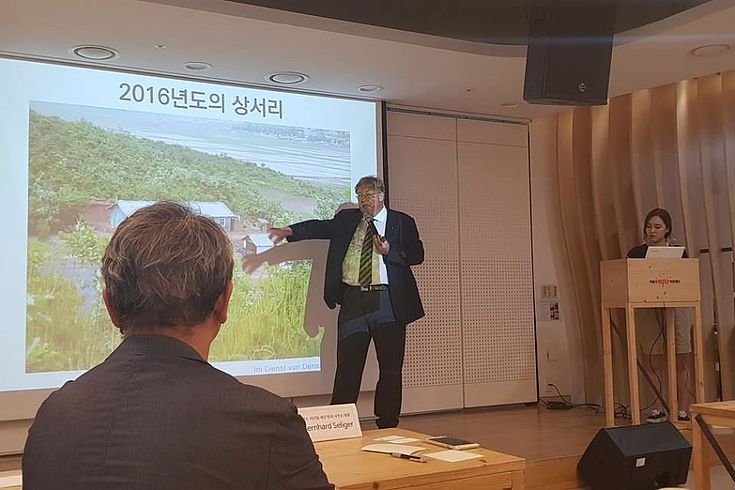Civic Forum
Inner-Korean Detente and the Role of the Environment
The participants of the civic forum
Participants and Topics
The latest forum, which took place on June 15, dealt with the role of the environment in the times of rapprochement between North and South. It was co-organized by the Korea Research Institute for Environment and Development, the Research Institute for Climate Change Action and the Institute for Korean Peninsula Development. In particular, the importance of energy, water, agriculture and afforestation and forest cooperation between both sides was discussed. The forum was opened by Kim Yong-Bong, President of the Institute for Korean Peninsula Development. The Vice President of the Korea Research Institute for Environment and Development, Kim Nam-Su, stressed the role of active discussion of citizens and experts for policy development.
HSS
Drinking Water as a Source of Economic Development
The first presentation on the role of energy for economic development in North Korea and energy cooperation was given by Park Hun of the Research Institute for Climate Change Action. Choi Dong-Jin of the same institute looked at the crucial role of water for health and development; while according to (misleading) international statistics sometimes North Korea is reported to give quasi-universal access to clean water, the reality is much more dire. In the countryside, most people do not have access to clean water, with the consequence of frequent health issues in the population. Hong Sang-Yong, secretary-general of the Korean Sharing Movement (KSM), reported about the experience of KSM in cooperation with North Korea in the field of agriculture and forestry in the past time of “sunshine policy” until 2008. He urged Koreans to be realistic about cooperation with the North and to come to mutual trust and understanding through dialogue.
Dr Bernhard Seliger talking about the cooperation in sustainable reforestation between the Hanns Seidel Foundation and North Korea
HSS
Reviewing HSF's Involvement in Sustainable Reforestation in the DPR Korea
Finally, Dr. Bernhard Seliger of Hanns Seidel Foundation Korea looked back at the last ten years of forest cooperation with North Korea. He stressed the role of sustainable learning, e.g. through the intranet website “Hwanggeumsan”, and also of frequent actual meetings of North and South. After the presentations, a vivid discussion with the participants of the forum ensued.



